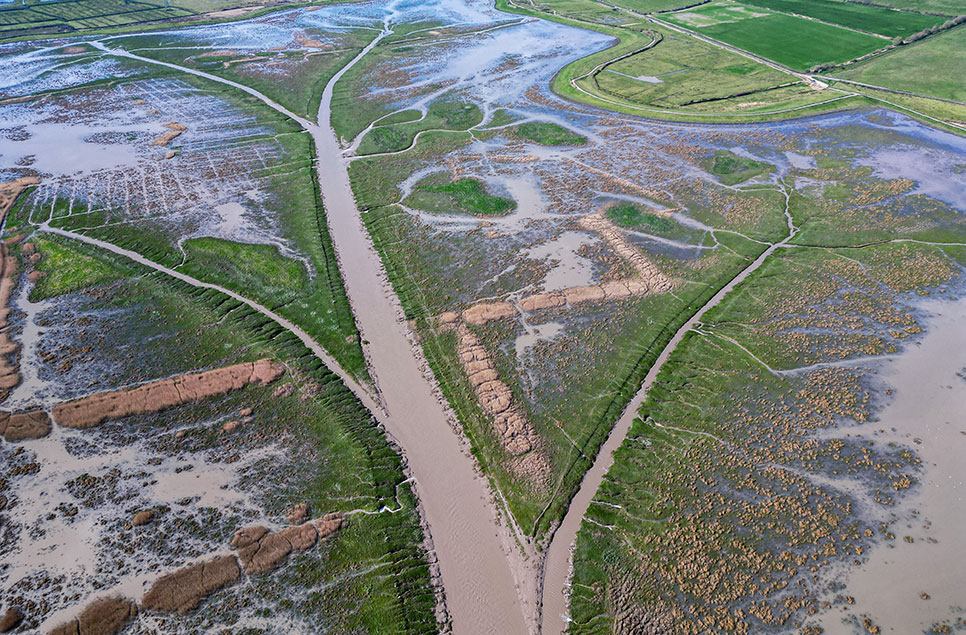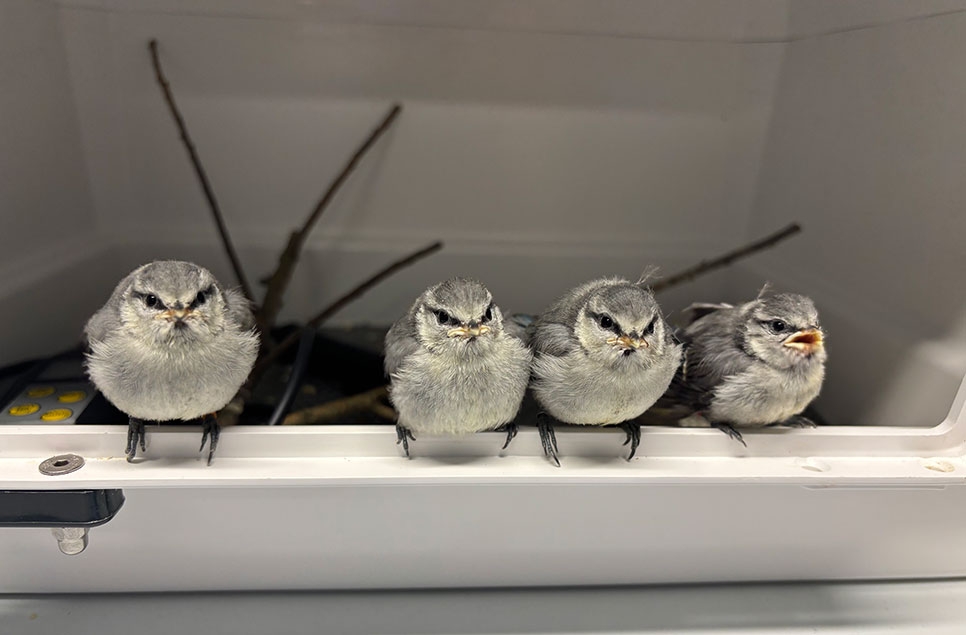Water experts urge Lords to fight for flood resilient homes in affordable houses debate

Leading civil engineers, environmental scientists, water experts, water companies and architects have appealed to the Lords to ensure the incoming housing law protects new and existing homes from flooding.
Contributing to the Housing and Planning Bill debate currently passing through the Lords, the coalition said that new development will place additional pressure on critical drainage and flood defence infrastructure. The group includes the Wildfowl and Wetlands Trust (WWT), the Institution of Civil Engineers (ICE), the Chartered Institution of Water and Environmental Management (CIWEM), Institution of Environmental Sciences (IES), the Royal Institute of British Architects (RIBA) and Water UK.
The group wants the Lords to amend the Bill so that it restricts developers’ automatic right to directly connect new houses to existing drainage systems – many of which are already over-loaded – and compel them to integrate low-cost measures known as sustainable drainage systems (SuDS), which compensate for the additional flow that new developments create.
The Flood and Water Management Act 2010 legislated to this effect, but the law was never implemented. Instead, planning guidelines were produced to require SuDS, but the group say the measure has been toothless in promoting greater flood risk mitigation on new developments and has failed to promote the added benefits of sustainable drainage for water quality, biodiversity and amenity. The group says the amendment tabled by Baroness Parminter, which will be debated today (25 April), will be instrumental in mitigating flood risk.
SuDs represent excellent value for money. In many cases, the capital cost of sustainable drainage will be lower than conventional drainage. Moreover, millions of pounds could be saved for communities and businesses by reducing the £1.3-£2.2 billion of flood damage each year in England. Natural features can also add to the value of new developments by making them attractive, safer places to live.
Dr Richard Benwell, Head of Government Affairs at the Wildfowl & Wetlands Trust (WWT) said:
“This bill is a test case for whether the Government is serious about a joined up approach to flood defence and environmental protection. Wales, Scotland and especially Northern Ireland have already made progress on sustainable drainage, but England is lagging behind. Building new homes that are naturally resilient from the outset is much more affordable than dealing with the consequences later, and can do wonders for water quality and nature. The Minister should listen to the cross-party alliance of Lords supporting sustainable drainage, in the long-term interests of communities and the environment”.
Former ICE President and flooding expert Professor David Balmforth said:
“Flooding is one of the major challenges facing society today, yet we continue to add to the problem by building new homes in a way that makes flooding more likely. This does not have to be the case as there is a proven and low cost solution using SuDs. The Pitt Review and the Committee on Climate Change view them as a force for good; so should the law”. We urge the Lords to send the Commons a Bill that will help protect society from flooding.”
Terry Fuller, Chief Executive of CIWEM said:
“It is absurd that in the current age we still allow developers to build homes and automatically connect to the sewer system without any consideration of the impact of doing so. This amendment would set us on the right path to encourage developers to consider flood risk from the outset”.
Sustainable drainage systems (SuDS) are a natural approach to managing drainage in and around properties and other developments. SuDS mimic nature and typically manage rainfall close to where it falls. SuDS can be designed to slow water down before it enters pipes, streams, rivers and other watercourses, they provide areas to store water in natural contours and can be used to allow water to soak into the ground or evaporated from surface water and lost or transpired from vegetation. SuDs also deliver a range of other benefits, such as improved water quality, amenity and biodiversity, and can help to reduce the urban heat island effect, air and noise pollution.
Baroness Kate Parminter (Liberal Democrat), Baroness Barbara Young (Labour) and Lord John Krebs (cross-bench, Chair of the adaptation sub-committee of the Committee on Climate Change) tabled the amendment on sustainable drainage systems (Amendment 119A).
Organisations:
The Wildfowl and Wetlands Trust (WWT) is a world-leading conservation organisation, with over 200,000 members and nine reserves across the UK. WWT pioneers wetland and wildlife conservation science and practice in the UK and all around the world and connects over a million visitors with nature at our UK wetland centres every year. www.wwt.org.uk
The Institution of Civil Engineers (ICE) is a leading source of professional expertise in transport, water supply and treatment, flood management, waste and energy. Established in 1818, it has over 88,000 members, 25% of whom are based overseas. ICE’s vision is to place civil engineering at the heart of society, delivering sustainable development through knowledge, skills and professional expertise. www.ice.org.uk
The Chartered Institution of Water and Environmental Management (CIWEM), is the leading independent Chartered professional body for water and environment professionals, promoting excellence within the sector. www.ciwem.org
Water UK brings people together to create better policies for the future of water. We represent all major statutory water and wastewater service supply organisations in England, Wales, Scotland and Northern Ireland. Our prime focus is on high-level policy, instigating and facilitating development of sustainable water policy that ensures lasting economic, social and environmental benefits. http://www.water.org.uk/
The Royal Institute of British Architects (RIBA) champions better buildings, communities and the environment through architecture and our members. We provide the standards, training, support and recognition that put our members – in the UK and overseas – at the peak of their profession. With government, we work to improve the design quality of public buildings, new homes and new communities. www.architecture.com
The Institution of Environmental Sciences (IES) is a membership organisation that represents professionals from fields as diverse as air quality, land contamination and education - wherever you find environmental work underpinned by science. A visionary organisation leading debate, dissemination and promotion of environmental science and sustainability, the IES promotes an evidence-based approach to decision and policy making. www.the-ies.org
The Landscape Institute is the Royal Chartered Institute for Landscape Architects and Landscape professionals, including landscape designers, landscape managers, landscape planners, landscape ecologists and urban designers. As a professional body and educational charity, we work to protect, conserve and enhance the natural and built environment for the public benefit. www.thelandscapeinstitute.org
The Chartered Institute of Ecology and Environmental Management (CIEEM) is the leading professional membership body representing and supporting 5,000 ecologists and environmental managers in the UK, Ireland and abroad. CIEEM’s vision is of a society that values the natural environment and recognises the contribution of professional ecologists and environmental managers to its conservation. www.cieem.net
The Environmental Policy Forum (EPF) is a network of UK environmental professional bodies promoting environmental sustainability and resilience for the public benefit. The EPF’s member bodies have a collective membership of around 40,000 environmental professionals, many of whom are individually chartered in environmental practice, science and engineering disciplines.
Buglife is the only organisation in Europe devoted to the conservation of all invertebrates. We're actively working to save Britain’s rarest little animals, everything from bees to beetles, worms to woodlice and jumping spiders to jellyfish.
Salmon & Trout Conservation UK the only UK fisheries charity that campaigns for the conservation, protection and sustainable management of an aquatic environment capable of supporting an abundance of indigenous fish species, invertebrates, animals and plant life - from source to sea.
The Angling Trust is the national representative and governing body for angling in England. It is united in a collaborative relationship with Fish Legal, a separate membership association using the law to protect fish stocks and the rights of its members throughout the UK.
The Rivers Trust is the new name for the Association of Rivers Trusts which is a waterway society and registered charity, and an umbrella organisation for trusts concerned with rivers in England and Wales.
The RSPB is the country’s largest nature conservation charity, inspiring everyone to give nature a home. Together with our partners, we protect threatened birds and wildlife so our towns, coast and countryside will teem with life once again.
The Wildlife Trusts want to inspire people about the natural world so that they value it, understand their relationship with it and take action to protect and restore it. There are 47 Wildlife Trusts covering the UK and the Isle of Man and Alderney. Together, The Wildlife Trusts are the UK’s largest people-powered environmental organisation working for nature’s recovery on land and at sea.



